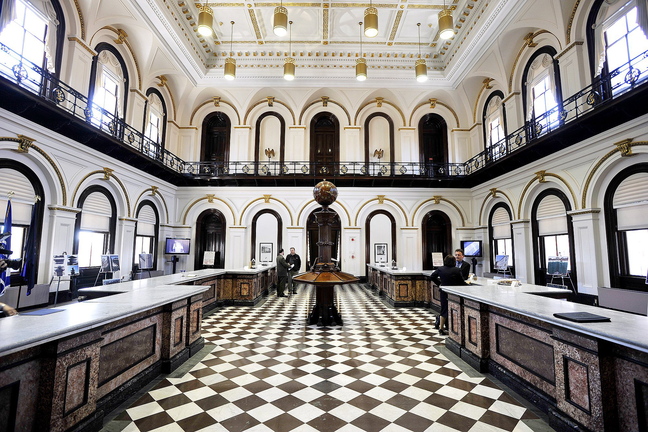Mediocrity in design, not growth, is the greatest threat to Portland today.
The goal of building a great city is ambitious, indeed. It asks everyone to work toward a common goal of greater prosperity and quality in the built environment. It asks us to pursue more than what we simply need as individuals. In turn, it strives to create a shared resource that provides both sustenance and opportunity for all – a commonwealth.
As a college student, I studied in Florence, Italy. It is one of the world’s great concentrations of art, architecture, commerce and culture. During the Renaissance, Florence’s business and political leaders proclaimed their pride in Florence by commissioning works of art and architecture. The Medici family, the richest bankers of the Renaissance period, funded the completion of the Duomo, Florence’s great cathedral. When completed, it was considered an engineering masterpiece with the largest dome in the world. It still dominates the skyline of the city more than 500 years later.
The Medici commissioned Michelangelo to create great works of art that to this day attract visitors from across the world. Art, architecture and culture reflected Florence’s ambition to be one of the great cities of the world.
The concept of wealth manifesting civic pride has long been part of American culture. We see it in the Old Custom House and the new City Hall. Andrew Carnegie financed more than 2,500 libraries in communities across the nation to promote opportunity for all those who were “industrious and ambitious” like himself. The buildings he financed were designed by skilled architects using high-quality materials to display the importance of their civic value to the community. Maine is fortunate to have modern-day benefactors like the Alfond family, which has invested in communities across the state to strengthen Maine institutions and enhance their contribution to Maine’s future.
In recent decades, however, the public realm has been denigrated. The concept of commonwealth – a public domain that is a source of pride and stewardship – has been largely forgotten. The belief by some that private wealth is virtuous and the public domain is corrupt has reduced commitment to community as a source of pride and civic identity. The “commonwealth” becomes an appendage of private wealth. The social contract between private enterprise and community has been diminished.
This is important because it puts the community at risk for the long term. If the growth and change occurring now result in buildings that only seek financial return for private gain, we lose the opportunity to create a better Portland. Developers, investors and building owners must be encouraged to go beyond private gain to create commonwealth – a city that is recognized throughout the world not only for its food and walkability, but for its dynamism and beauty, as well. A better-built environment increases value for all by reinforcing what we already know is valuable, namely the unique character of Portland as a great place to live, work, visit and play.
Portland protects its historic assets through the Historic Preservation Board, created to preserve the quality and character of historic buildings that make Portland a special place. This regulatory framework has benefited property owners and citizens alike, by enforcing a high standard of design for new construction and renovations in historic districts.
Now that the city is growing again, it is critical to create new high-quality buildings and neighborhoods that will be worth preserving into the future. In other words, the quality of design in new construction should create wealth for the investor in the short term, and value for the city in the long term. New development should make Portland even better than it is today.
The alternative is growth that benefits a few but leaves the community less than it was before. Short-term gain and mediocrity in design diminish the special character of place that strengthens Portland. This character is a competitive advantage in attracting creative talent and nourishing the spirit of all who live here.
Portland needs to grow and change to thrive, but it needs to do it in a way that makes it better. Mediocrity in the service of growth will not create long-term value.
Designing a better community requires a shared commitment to the commonwealth, while recognizing the importance of private investment to build a better future. Great design must be honored as a community value if Portland is to remain a great city.
Send questions/comments to the editors.



Comments are no longer available on this story